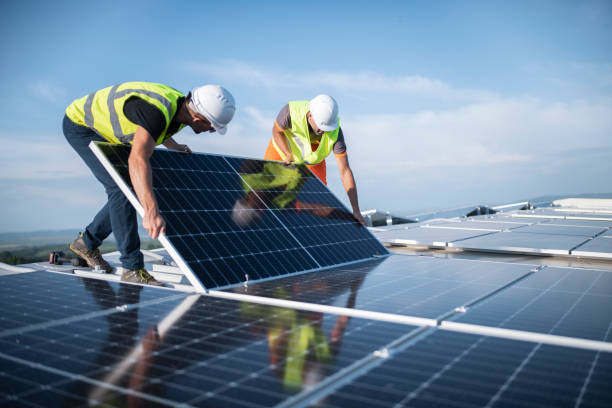Even though solar power is widely talked about and widely adopted in many parts of the country, it’s not unusual to still have some unanswered questions about it, particularly if you’re a homeowner. With government incentives varying from state-to-state, you may be wondering what help you’re eligible for, or whether a solar system will provide you with power during a blackout, for example.
To keep you updated with the many benefits of solar power, and to help you appreciate whether it makes financial sense for you to have a solar panel system installed at your home, here are answers to some of the most commonly asked questions:
Q: Will I be paid for the power my panels produce?
A: A system called net metering enables owners of solar panel systems to earn payments or credits from their utility provider, should their panels produce more energy than they can use. Feeding it back to the grid, utilities then credit the net amount produced by the panels, back to them.
Q: Will solar panels increase the value of my home?
A: Solar systems have the power (pun intended!) to increase a home’s value by a relatively significant amount, with buyers who want to reduce their energy bills and lower their carbon footprint, finding them an attractive prospect.
Some studies have shown that home prices for properties with solar panel installations, increase by around 4.1%
Q: Do hailstorms or wind affect solar panels?
A: Provided you buy your solar panels from a reputable manufacturer who rigorously test their panels, and have them installed professionally, they should hold up pretty well against strong winds and hailstones.
Q: How is my insurance affected by solar panels?
A: You may find that a solar panel installation on your roof raises your insurance premiums a little, due to the increase in value to your property, but not by a big amount. While you can get a more precise figure from your insurance provider, most customers will typically only pay a few bucks more for their cover per year.
Q: Should I invest in a battery backup system?
A: If you want your home to enjoy clean, green power even when the grid is down, a battery backup system will be required. With a growing number of battery manufacturers, you can find a reliable one to keep your smaller appliances and outlets running during an outage, or if you want to go fully off-grid, you can buy an advanced battery to match you solar power system.
Note that batteries should also qualify for the solar tax credit of 30%
Q: Are there any government incentives available for solar panels?
A: From federal solar tax credits worth 30% of the cost of installation, to net metering (see the 1st question), and a range of local incentives that include utility company rebates, to tax exemption, bill credits and payments, there are a whole host of ways to save on the cost of solar installation. Check with your particular state to see exactly what incentives you might be eligible for.
Q: Is my home suitable for solar panels?
A: Generally speaking, if your home has a roof facing east, west or south, and you are currently paying for your electricity, then you and your home should be suitable for a solar panel installation.
Q: When will I start to see a return on my investment?
A: This can vary wildly per household, and rather than second guessing how long it will take before you get any kind of payback on your investment, it’s best to get the answer direct from a local solar installer. However, the majority of households see a return on their investment within 8 to 10 years, while businesses may see one a little sooner, at around the 5 year mark.
For answers to questions tailored to your particular circumstances and solar requirements, please schedule a free consultation with a local installer.

